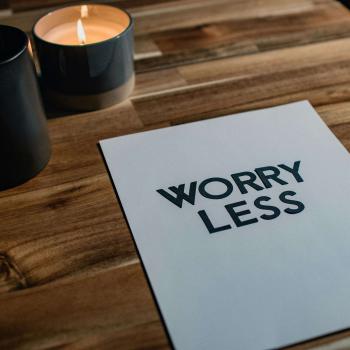Have you ever heard of the impostor syndrome, also known as the fraud syndrome? I hadn’t until it was brought to my attention by the blogger and cartoonist Carl Richards. For starters, here’s a description from Wikipedia:
Imposter syndrome is a psychological pattern in which a person doubts their accomplishments and has a persistent internalized fear of being exposed as a “fraud.” Despite external evidence of their competence, those experiencing this phenomenon remain convinced that they are frauds, and do not deserve all they have achieved.
People with “impostorism” attribute their success to sheer luck, or as a result of tricking others into thinking they’re more intelligent than they really are. Like an actor playing a role on stage or screen. While the syndrome is prevalent among high-achieving women, research shows that it affects men almost equally.
Richards points out the curious thing about impostor syndrome—it really doesn’t hit you until you’ve achieved a level of success. In his words:
It doesn’t just show up in beginners. High achievement doesn’t solve the problem — it can actually make it worse! And the reason is that as you get further and further off the ground, achievement often acts as air beneath you. You may be more skilled, and more confident. But at the same time, you’ve got further to fall.
This may explain why Jodie Foster “thought it was a fluke,” when she won an Oscar. In Foster’s words, “I thought everybody would find out, and they’d take it back. They’d come to my house, knocking on the door, ‘Excuse me, we meant to give that to someone else. That was going to Meryl Streep.’”
It may also be why Maya Angelou once said, “I have written eleven books, but each time I think, ‘uh oh, they’re going to find out now. I’ve run a game on everybody, and they’re going to find me out.'”
If it can happen to Jodie Foster and Maya Angelou, it can happen to you.
While Richards doesn’t offer precise advice on beating the syndrome, he references the expression “fake it until you make it.” In other words, the feelings of inadequacy you’re feeling, aren’t apparent to everyone else. They’re just thoughts inside your head that don’t represent the real you and may require a reset on how you view the world around you.
There are others who see themselves as acting their way through life.
In his recent book The Second Mountain, David Brooks describes a different group of individuals who believe they’re in a role that they weren’t meant to play. They might be best described as the discontented. If you’re part of this group, you believe the life you’re living doesn’t represent who you really are or who you were meant to be.
Brooks references the writer Ada Calhoun who tells us that many people in their 30s and 40s feel adrift, like they’re misleading their lives. One woman, 44, told Ada that while she sometimes has moments of contentment, she often hears a voice deep inside her head that shouts “What are you doing? This is pointless and boring! Why aren’t you out there doing something you love!”
The author also quotes the writer Veronica Rae Saron, who spins a similar tale: “Those among us with flashy Instagram accounts, perfectly manicured LinkedIn profiles, and confident exteriors are probably those who are feeling the most confused when it comes to the future. The stuck-ness sensation is everywhere, and there’s a correlation between those who feel it and those who put off a vibe of feeling extremely secure.”
So how do you relieve the feeling of stuck-ness, the feeling you’re attached to a life that’s not really your own? You need to take action. Thomas Moore, the soul expert, spells out what your primary goal should be in this edited passage from his book A Life at Work, Discovering What You Were Born to Do:
You want your life to match your sense of self—your values, your hope, your style, and your deep needs.
He points out that matching your life with your true self is not an easy path, it is the road less travelled. To navigate this path, you must frequently consult your inner compass to determine if you are headed in the right direction. Moore goes on to caution us that:
You might go through more phases than people think are standard. Many men and women wake up one morning in their married life to discover that they have changed in some way. Suddenly they crave more meaningful work and activities. They now have to adjust to a different status, and their partner also has to deal with change.
David Brooks also talks about the importance of living an authentic life, one that is guided by the still voice within. Again, the key is taking action, moving your life forward each day. In his words:
As you make your own personal journey, you learn to better express your own unique self. You learn to get in touch with yourself, find yourself, and live in a way that is authentic to who you really are. The ultimate source of authority is found inside, by listening to the authentic voice within.
We all strive to live authentic lives, so ask yourself: What do I believe in? Where do I belong? What changes do I need to make to live the best possible life, the one I was truly meant to live?


















